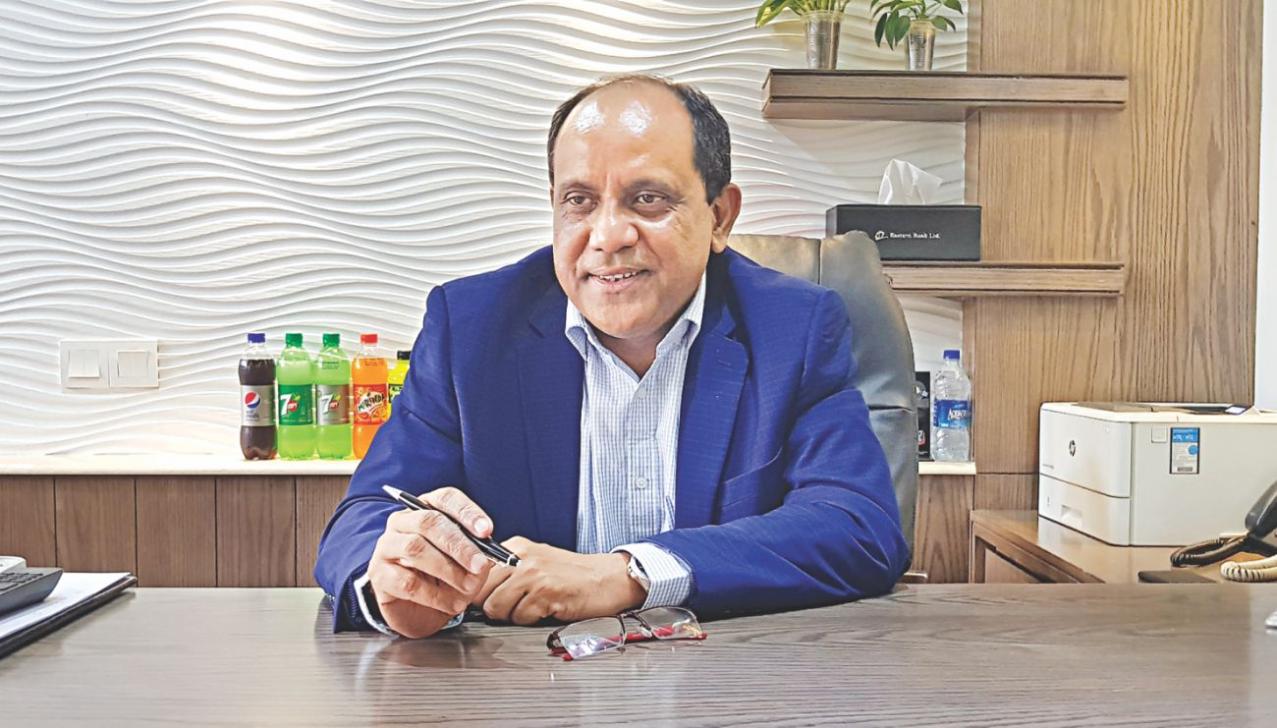PepsiCo sees massive potential in Bangladesh

The soft drinks industry has tremendous potential in Bangladesh, which is a home to a big pool of young population and has posted healthy economic growth in the last 10 years.
The industry normally grows along with the economy, which is evident from annual per capita consumption of soft drinks in developed countries: it is 450 bottles in Germany, 550 in the US and 600 in Mexico but only 17 in Bangladesh.
Bangladesh also lags behind its peers in Saarc -- India 25 bottles, Vietnam 45 and Sri Lanka 40.
“Now the CSD [carbonated soft drinks] manufacturers need some policy support to make the most of this opportunity and achieve exponential growth,” said Khurshid Irfan Chowdhury, managing director of Transcom Beverages Ltd, the franchise of PepsiCo in Bangladesh.
Consumption of hard drinks in Bangladesh is highly regulated whereas it is widely consumed in developed countries – another factor that offers immense opportunities for the sector to grow, he told The Daily Star in an interview last week.
The CSD manufacturers in Bangladesh are burdened with a whopping 43.75 percent value-added tax and supplementary duty, which is much lower in other Saarc nations.
Such taxes hover around 35.3 percent in India, 29.2 percent in Sri Lanka, 24.2 percent in Nepal and 30 percent in Bhutan, according to Chowdhury.
The government should lower the existing 25 percent supplementary duty on the CSD, which was 15 percent four to five years ago, he said.
In the last six years, the CSD manufacturers have invested around Tk 4,000 crore in the industry, he said.
“If the taxes are cut, the sales of soft drinks will increase manifold, more jobs will be created and more new investment will be made.”
The sector has grown at 7-8 percent annually in the last five years whereas Transcom Beverages has grown more than 18 times since its inception in 2000, he said.
“PepsiCo is now the strong CSD market leader in Bangladesh with a huge gap in market share with its competitors,” said Chowdhury, who has 28 years of experience in the fast moving consumer goods industry.
A majority of the remittance recipients and families of garment workers live in rural areas, where soft drinks consumption is growing very fast, he said.
“We are basically involved in the carbonated soft drinks business and water segment.”
“The list of our products include Pepsi, 7 Up, Mirinda, Mountain Dew, Slice, Pepsi Diet, Pepsi Black, 7 Up Lite and Aquafina. PepsiCo now occupies over 50 percent market share in the CSD clear category thanks mainly to the champion brand 7 Up.”
7 Up has been adjudged the most loved brand and the Best Beverage Brand in Bangladesh for the last eight years by Bangladesh Brand Forum.
Transcom Beverages became the best bottler in the world and won the International Bottler of the Year award twice -- in 2009 and 2016.
In the Indian region, Transcom Beverages won the Best Bottler of the Year award six times. “Our plants in Dhaka and Chattogram have also won Best Plant awards twice.”
Chowdhury said Transcom Beverages has a special place in the world as a marketer of Pepsi-branded soft drinks.
Transcom Beverages has so far invested close to $180 million in the industry, said Chowdhury, who is one of the global recipients of the PepsiCo President's Ring of Honor award for his performance in 2010.
This is the highest award for a person in the soft drinks industry given by PepsiCo among its operations in the globe.
Transcom Beverages is also a top taxpayer in the country, he said.
It won the award as the highest taxpayer company in fiscal 2014-15 and 2016-17 in the food and allied category and achieved “AAA” credit rating from 2012 to 2017.
“All these were possible because of the continuous support and guidance of Transcom Group's Chairman Latifur Rahman, who has also been awarded as one of the top taxpayers of the country for years,” he said.
“Latifur Rahman along with his Transcom Group is widely respected in Bangladesh for maintaining business ethics, which has paid off for Transcom Beverages.”
The soft drinks industry entered Bangladesh with returnable glass bottles when there were only Pepsi and Coca-Cola, he said.
It flourished after the introduction of soft drinks in plastic bottles in the early 2000s, said the veteran marketer, who started his career with Unilever and worked in different capacities, including regional sales manager and brand manager.
Transcom Beverages has three plants: two in Dhaka and one in Chattogram, said Chowdhury, who was the sales director of Reckitt Benckiser before joining Transcom Beverages as general manager for sales and marketing.
“Despite being a franchise, we are self-sufficient in many cases. We have our own preform manufacturing plant, shrink wrapping machine, filling machine and carbon dioxide plant.”
“We have to bring in the concentrate from the mother organisation. Our main source is Singapore and one of the main hubs is Ireland.”
Transcom Beverages always believed in giving back to the society as the company strictly follows its motto “Performance with Purpose”, said Chowdhury, who hails from Chattogram.
The company regularly provides scholarships to meritorious students among the children of its employees.
“We have also extended funds among the Rohingyas through Transcom Group's Faraaz Hossain Foundation. We have also been there for the victims of the recent flood in the country.”
